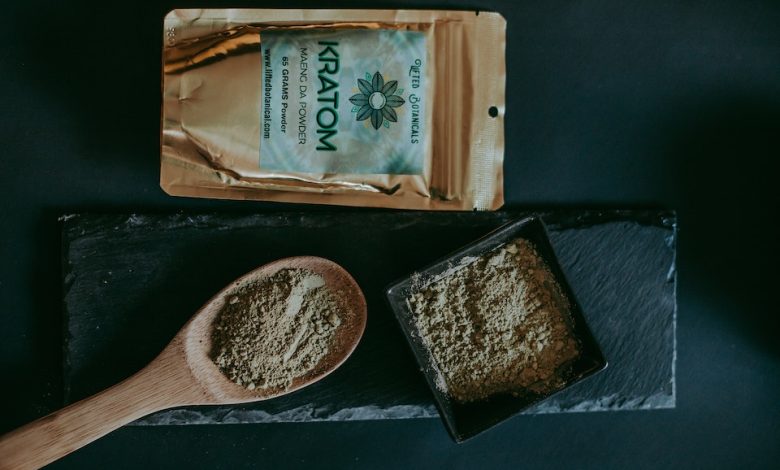Can You Overdose on Kratom?

Kratom is a tropical tree native to Southeast Asia, specifically Thailand, Malaysia, Indonesia, and Papua New Guinea. The scientific name of the tree is Mitragyna speciosa. Kratom leaves have been used for centuries in traditional medicine due to their stimulant and opioid-like effects.
The active compounds in kratom leaves are mitragynine and 7-hydroxymitragynine, which interact with opioid receptors in the brain, producing pain relief and a sense of relaxation. In lower doses, kratom can have stimulating effects, while higher doses tend to have more sedative effects.
Kratom leaves are typically chewed or brewed into a tea by people in Southeast Asia. In other parts of the world, kratom is commonly consumed in the form of capsules, tablets, or powdered leaves. It has gained popularity as an herbal supplement and alternative to traditional opioids for pain management, as well as for its potential mood-enhancing and energizing effects.
However, it’s important to note that the use of kratom has raised concerns and controversies. While some people report positive experiences with kratom, others have reported adverse effects, including addiction, withdrawal symptoms, and potential liver toxicity. The U.S. Food and Drug Administration (FDA) has not approved kratom for any medical use, and some countries have banned its use altogether or regulated it as a controlled substance.
If you are considering using kratom, it is crucial to do thorough research, understand the potential risks and benefits, and consult with a healthcare professional knowledgeable about kratom and its potential interactions with other medications or health conditions.
Benefits Of Kratom
While there are anecdotal reports of potential benefits associated with kratom use, it’s important to note that scientific research on kratom is limited. The information provided here is based on available anecdotal evidence and limited research.
1. Pain Relief: Kratom has been traditionally used for its analgesic properties. Some individuals report that kratom helps alleviate chronic pain conditions, such as arthritis, fibromyalgia, and back pain. This effect is thought to be due to the interaction of kratom’s active compounds with opioid receptors in the brain.
2. Mood Enhancement: Kratom may have mood-enhancing effects, with some users reporting increased energy, sociability, and improved mood. It is suggested that kratom’s interaction with serotonin and dopamine receptors may play a role in its potential mood-boosting properties.
3. Energy and Focus: Kratom, particularly at lower doses, is sometimes used as a natural stimulant to increase energy levels and improve focus and concentration. It may provide a mild pick-me-up effect without the jitters often associated with caffeine or other stimulants.
4. Opioid Withdrawal Management: Some individuals have reported using kratom as a self-treatment for managing opioid withdrawal symptoms. It is believed that kratom’s interaction with opioid receptors may help alleviate withdrawal symptoms and reduce cravings, although further research is needed in this area.
5. Relaxation and Stress Relief: Kratom has been used traditionally as a natural remedy for relaxation and stress relief. Some individuals find that it helps them unwind, reduce anxiety, and promote a sense of calmness.
It’s important to remember that these potential benefits are based on anecdotal evidence and personal experiences. More scientific research is needed to better understand the effects, safety profile, and potential risks associated with kratom use. If you are considering using kratom, it’s advisable to consult with a healthcare professional who is knowledgeable about its potential effects and can provide personalized guidance.
Can You Overdose on Kratom?
Yes, consuming a high dose of kratom may lead to undesirable and potentially dangerous effects, including overdose symptoms. However, it is rare for kratom alone to cause a fatal overdose. It’s important to note that the use of kratom in combination with other substances, such as opioids or sedatives, can increase the risk of adverse effects and overdose.
Signs and symptoms of kratom overdose can include:
1. Nausea and vomiting
2. Severe sedation or drowsiness
3. Rapid heartbeat or irregular heart rhythm
4. High blood pressure
5. Agitation or irritability
6. Confusion or delusion
7. Seizures
8. Difficulty breathing
9. Coma
If you suspect a kratom overdose or experience any severe symptoms after consuming kratom, it is crucial to seek immediate medical attention. Call emergency services or go to the nearest emergency room.
It’s worth mentioning that the effects of kratom can vary between individuals, and some people may be more sensitive to its effects than others. It is always recommended to start with a low dose and be cautious when using kratom to minimize the risk of adverse effects or potential overdose.
If you have concerns about kratom or are considering using it, it’s advisable to consult with a healthcare professional who can provide guidance based on your individual circumstances and help you make informed decisions.
Safe Dose of Kratom
Determining the appropriate dosage of kratom can be challenging, as it can vary depending on factors such as the individual’s body weight, tolerance, and desired effects. Additionally, the potency of kratom products can vary between different strains and vendors. It’s important to start with a low dose and gradually increase it if needed, while closely monitoring your body’s response. It is also advisable to consult with a healthcare professional before using kratom to determine an appropriate dosage for your specific situation.
That being said, here are some general guidelines for kratom dosage:
1. Low Dose: Typically, a low dose of kratom ranges from 1 to 3 grams. This dosage is associated with mild stimulant effects and may provide increased energy, focus, and sociability.
2. Moderate Dose: A moderate dose of kratom is usually between 3 to 5 grams. At this dosage, users may experience a balance between stimulant and sedative effects, including pain relief, relaxation, and mood enhancement.
3. High Dose: High doses of kratom generally range from 5 to 8 grams or more. These doses are more likely to produce sedative effects, including pain relief, relaxation, and potential feelings of euphoria. Higher doses may also increase the risk of adverse effects and should be approached with caution.
It’s important to note that individual sensitivity and tolerance to kratom can vary significantly. Starting with a low dose and gradually increasing it, if needed, allows you to assess how your body responds to the effects of kratom.
It’s also worth mentioning that frequent and high-dose use of kratom can potentially lead to tolerance, dependence, and adverse effects. It is recommended to take regular breaks and use kratom responsibly.
What is Kratom hangover?
A kratom hangover refers to the unpleasant aftereffects that some individuals may experience following the use of kratom. These symptoms can vary between individuals and are often characterized by a general feeling of discomfort and malaise. However, it’s important to note that a kratom hangover is not universally experienced, and some individuals may not experience any adverse effects.
The potential symptoms of a kratom hangover may include:
1. Fatigue and lethargy: Feeling excessively tired and lacking energy.
2. Headache: A lingering headache that can range from mild to severe.
3. Nausea and stomach discomfort: Some individuals may experience digestive issues, including nausea, stomach discomfort, or gastrointestinal distress.
4. Mental fog or cognitive impairment: Difficulty concentrating, decreased mental clarity, or feeling mentally sluggish.
5. Dehydration: Kratom can have a diuretic effect, leading to increased urination and potential dehydration, especially if adequate fluids are not consumed during use.
6. Mood disturbances: Some individuals may experience irritability, anxiety, or feelings of depression during a kratom hangover.
To minimize the likelihood and severity of a kratom hangover, it is important to use kratom responsibly and follow these guidelines:
1. Start with a low dose: Begin with a low dosage of kratom and gradually increase it if necessary. This can help minimize the risk of adverse effects and potential hangover symptoms.
2. Stay hydrated: Drink plenty of fluids while using kratom to maintain proper hydration levels.
3. Take breaks and practice moderation: Avoid using kratom every day and give your body regular breaks to minimize the risk of tolerance, dependence, and potential hangover symptoms.
4. Choose high-quality kratom: Purchase kratom from reputable vendors to ensure you are getting a pure and uncontaminated product.
If you do experience a kratom hangover, it is generally self-limiting and will resolve on its own with time. Resting, staying hydrated, and practicing self-care can help alleviate the symptoms. However, if the symptoms persist or worsen, it’s advisable to seek medical attention.
As with any substance, individual experiences with kratom can vary, and it’s essential to listen to your body and adjust your use accordingly. If you have concerns about kratom or its potential effects, it is always best to consult with a healthcare professional.





